Sleep and college, two words that often don't go well together. Sleep is essential for our overall well-being; as important as food and water! Insufficient sleep is associated with a number of chronic diseases and conditions—such as diabetes, cardiovascular disease, obesity, depression, and infectious disease (including the common cold). Sleep deprivation significantly lowers the production of the antibodies needed to fight infection; whereas allowing yourself to get adequate sleep will lift your mood and give you more energy to exercise, both of which can help heighten your immune activity. A study in Psychosomatic Medicine found that even minor sleep disturbances cause a significant drop in the number of natural killer cells whose job is to destroy invaders. Sleep loss and sleep disorders are among the most common yet frequently overlooked and readily treatable health problems. Indeed, sleep has a major impact on our overall quality of life!
Until the 1950s, most people thought of sleep as a passive, dormant part of our daily lives; a non-product period. We now know that our brains are very active during sleep, and the body is in a state of restoration and repair. Moreover, sleep affects our daily functioning and our physical and mental health in many ways that we are just beginning to understand. Sleep, which accounts for one-third of our life, has a profound effect on the quality of the other two-thirds of our life.
| Circadian Rhythm | Hormone | Insomnia |
| Narcolepsy | Parasomnia | REM Sleep |
| Sleep Apnea | Sleep Debt | Sleep Inertia |
| Sleep: Basic Training |
- Sleep - The Ups and Downs:
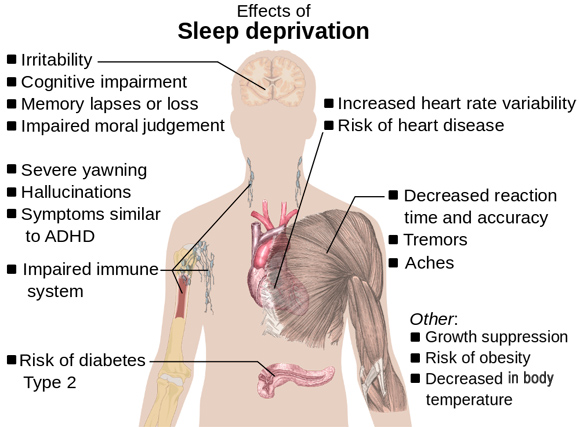
- The Highly Researched Benefits of Quality Sleep:
- Improved Memory, Attention Span, and Learning
- Defends Against Chronic Diseases such as Diabetes, Heart Disease, and Cancer
- Reduces Inflammation
- Increased Creativity
- Increased Athletic Performance
- Weight Management and Obesity Control
- Helps Manage Stress
- Helps Avoid Accidents and Mishaps
- Helps Fight Depression and Improves Mood
- Bolsters the Immune System
- The Highly Research Results of Sleep Deprivation:
- Lack of Focus and Errors in Judgment
- Reduction in Mental and Physical Reaction Time
- Increase in Stress-Related Hormones
- Increase in Blood Pressure, Increased Risk of Heart and Blood Vessel Disease
- Higher Anxiety, Decrease in Stress-Coping, Depression
- Lower Will-Power Resulting in Pool Health-Related Decisions
- Increased Risk of Obesity and Diabetes
- Lower Quality of Life
- The Highly Researched Benefits of Quality Sleep:
- The Story of Sleep:
- Sleep Cycle
- Sleep follows a pattern of alternating REM (rapid eye movement) and NREM (non-rapid eye movement) throughout a typical sleep period
- The complete sleep cycle repeats about every 90-110 minutes.
- Stages of Sleep:
- NREM:
- 75% of sleep
- Comprised of 4 stages
- Stage 1:
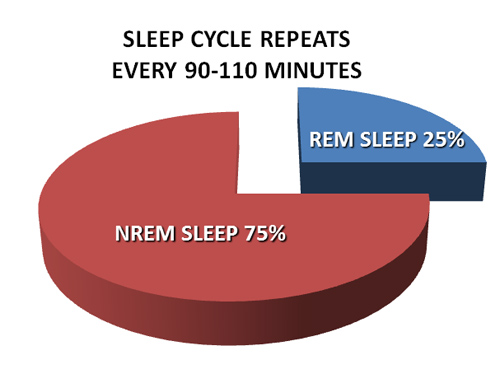
- Light sleep; can be awakened easily
- Stage 2:
- Onset of sleep
- Sensation slows; awareness of surroundings fades
- Breathing and heart rate are regular
- Body temperature drops
- Stage 3 and 4:
- Difficult to awaken
- Deepest and most restorative sleep
- Blood pressure drops and breathing slows
- Muscles relax as circulation to muscles increases
- Tissue growth and repair occurs
- Energy restored
- Stage 1:
- NREM:
- Sleep Cycle
- REM
- 25% of sleep
- The first REM sleep period usually occurs about 70
to 90 minutes after we fall asleep.
- As the night progresses, REM sleep periods increase in length while deep sleep (stages 3 and 4 above) decreases
- Provides energy to brain and body
- Brain is active; dreams occur
- Eyes move back and forth rapidly
- Body is immobile
- Muscles completely relaxed
- Circadian Rhythms:
- A circadian rhythm is a roughly 24 hour cycle in the
physiological processes of living beings, including plants,
animals, and people.
- Often referred to as the "body's biological clock or internal clock",
- Circadian rhythms can change sleep-wake cycles, hormone release, brain activity, cell regeneration, body temperature and other important bodily functions including eating/feeding.
- Produced by natural factors within the body; also affected by signals from the environment. Light is the main cue influencing circadian rhythms, turning on or turning off genes that control an organism’s internal clocks.
- Circadian is Latin for "around a day".
- A circadian rhythm is a roughly 24 hour cycle in the
physiological processes of living beings, including plants,
animals, and people.
- Circadian Rhythm Sleep Disorders:
- Caused by a disruption in the Circadian Rhythm or the normal sleep-wake cycle.
- Common Circadian Rhythm Sleep Disorders
- Delayed Sleep Phase Disorder: Night owl tendencies that delay the onset of sleep; often found in college students; Late to sleep, early to rise.
- Advanced Sleep Phase Disorder: Often seen in the elderly; abnormally early evening bedtimes and early morning awakenings' often referred to as "morning larks"; typically sleepy in the late afternoon or early evening.
- Jet Lag: Disruption of biological clock adjusting to a new time zone. Eastward travel is more difficult than westward travel because it is easier to delay sleep than to advance sleep.
- Shift Work Disorder affects people who frequently rotate shifts or work at night.
- Narcolepsy; Sleep disorder in which people experience excessive daytime sleepiness and uncontrollable episodes of falling asleep during the daytime activities despite adequate sleep.
-
Sleep Disorders:
Sleep-related difficulties – typically called sleep disorders – affect
many people. Major sleep disorders include:
- Insomnia – (Latin word for "no sleep") an inability to fall or stay asleep that can result in functional impairment throughout the day. Chronic insomnia can negatively impact every system of the body.
- Narcolepsy – excessive daytime sleepiness combined with sudden muscle weakness; episodes of narcolepsy are sometimes called "sleep attacks" and may occur in unusual circumstances.
- Restless Legs Syndrome (RLS) – an unpleasant tingling or prickly sensation in the legs that can make it difficult to fall asleep.
- Sleep Apnea – interrupted sleep caused by periodic gasping or "snorting" noises or momentarily suspension of breathing. Often associated with gaining weight. For additional information on Sleep Disorders or to find a Sleep Professional in your area, click here.
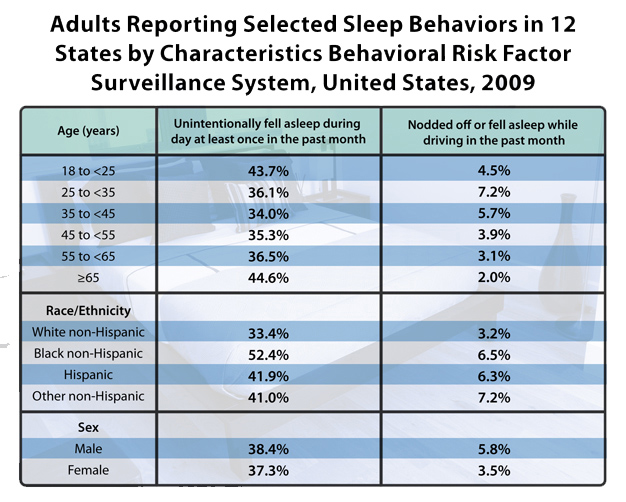
Stats to Remember:
- According to a recent study by the National Sleep Foundation:
- 63% of college students do not get enough sleep, or are sleep deprived.
- 15% percent of college students admit that they fall asleep in class.
- Students who studied hard all week and then stayed up all night partying on the weekend lost as much as 30% of what they had learned during the week.
- A 2007 survey by the American College Health Association found that 40 percent of students felt well rested no more than two days per week.
- A 2001 study found that only 11 percent of college students slept well consistently, while 73 percent experienced at least occasional sleep issues
- In a 2008 report published by the Harvard Medical School, sleep deprivation directly impacts student learning, and the three distinct brain processes: acquisition, consolidation, and recall.
- A recent study at the University of Rhode Island indicated that students were losing an average of 45 minutes of sleep each week because of their cell phones.
- It is estimated that 50 to 70 million Americans chronically suffer from a disorder of sleep and wakefulness, hindering daily functioning and adversely affecting health and longevity.
- Sleep apnea affects as many as 18 million Americans.
- The National Department of Transportation estimates drowsy driving to be responsible for 1,550 fatalities and 40,000 nonfatal injuries annually in the United States.
- In 2009, only 31% of high school
students reported getting at least 8 hours of sleep on an average school
night.
- A 2008-2009 study conducted by the Center for Disease Control
and Prevention reported that, among 74,571 adult respondents in 12
states,
- 35.3% reported <7 hours of sleep during a typical 24-hour period,
- 48.0% reported snoring,
- 37.9% reported unintentionally falling asleep during the day at least once in the preceding month,
- 4.7% reported nodding off or falling asleep while driving at
least once in the preceding month.
| Know Your Numbers |
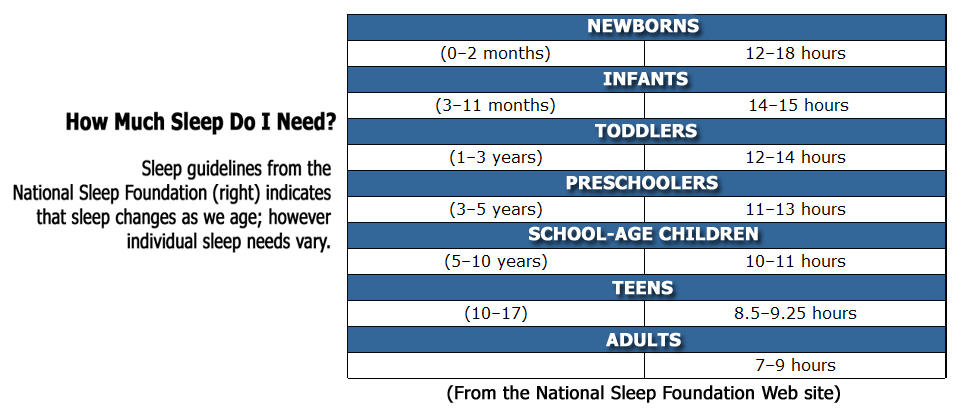 |
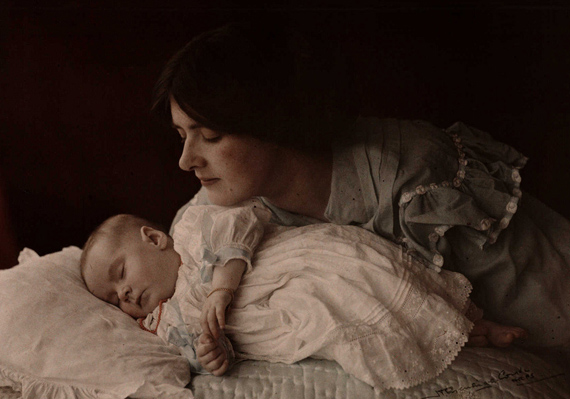 Drink Alcohol Only in Moderation
Drink Alcohol Only in Moderation